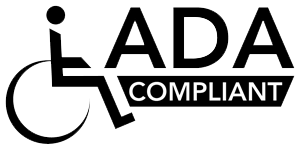Local Health Centers Receive Much-Needed Support from American Rescue Plan

Mendocino County, CA – During the pandemic, local community health centers have spent untold, and often unpaid, hours testing and vaccinating their patients and other community members to reduce the spread of COVID-19. Thanks to federal funding, many of these organizations will be receiving some much-needed financial relief.
The American Rescue Plan Act provides one-time funding for a two-year period to support health centers funded under the Health Center Program “to prevent, mitigate, and respond to coronavirus disease 2019 and to enhance health care services and infrastructure,” according to the Health Resources and Services Administration (HRSA).
In Mendocino County, the federally qualified health centers (FQHCs) funded by the Health Center Program include Anderson Valley Health Center in Boonville, Long Valley Health Center in Laytonville, MCHC Health Centers in Ukiah and Willits, Mendocino Coast Clinics in Fort Bragg, and Redwood Coast Medical Services in Gualala. FQHCs and affiliated rural health centers such as Baechtel Creek Medical Clinic in Willits serve about two-thirds of people in Mendocino County, providing everything from medical care to behavioral health services, dental care, and some specialty services.
These health centers are deeply embedded in the communities they serve, having fostered extensive networks and trusting relationships that allow them to reach even the most underserved populations. Some health centers work in partnership with other agencies to provide street medicine to those without stable homes. Many FQHCs have well-established relationships with local school districts to assist children in poverty. Still others work with agencies that support housing, food distribution, and other services to connect with patients who need health care.
Mendocino Coast Clinics Executive Director Lucresha Renteria explained that she and other local health center leaders did what they felt they must do to care for their communities and hoped financial reimbursement would follow. Happily for them, it has. MCC will receive $2.23m. Redwood Coast Medical Services will receive $1.33m. Long Valley Health Center and Anderson Valley Health Center received $971k and $940k respectively.
“We’ve continually put patients above revenues whenever there was a question of safety. For example, when we see patients via telehealth, we receive about 50 percent of our usual rate from Medicare for in-person care. But we shifted to telehealth, because it was safer for people to receive care from home, especially medically vulnerable patients,” she explained. Renteria gave example after example of additional costs resulting from the pandemic, from supplies to facility upgrades.
Usually, local health centers negotiate purchasing agreements so they can buy items in bulk at a lower cost. However, when the pandemic hit, shortages of gloves, masks, swabs, and other essentials required health centers to buy supplies from non-preferred vendors at non-preferred rates. Meanwhile, more intensive cleaning between patients slowed things down, leading to fewer patient visits. Health centers are paid on a per-visit basis. Also, health centers upgraded their facilities and purchased extra equipment to improve safety. At Mendocino Coast Clinics, they installed a $40,000 touchless door entry system and purchased special oral suction units in the Dental Department to reduce airborne particles.
One of the biggest unanticipated expenses involved COVID testing and vaccination. Some health centers received grant funding for testing, but they did not receive reimbursement for the staffing and supplies associated with the community vaccination clinics they provided. Testing and vaccination expenses included tent rentals for outdoor events, temporary signage, testing supplies, the cost of shipping tests to labs, and most significantly, the staff time to administer tests and vaccines and coordinate the logistics, from patient appointments to extensive data entry required by government databases. Chloe Guazzone, executive director of Anderson Valley Health Center, said, “CHCs in Mendocino County have tried hard to ensure that not a single person in Mendocino County has been left out when it comes to COVID testing, treatment and vaccination.”
Renteria agreed and added, “FQHCs throughout the county had to maintain primary care services while balancing the community need for testing and vaccinations. At MCC, we hired nurses to create a vaccination team. We also had to pull some employees off their regular duties to help with vaccine clinics.”
Some employees had to take leaves of absence to care for young children who were forced into distance learning from home when schools closed their campuses. The remaining employees took on additional duties, often requiring overtime, and supported one another as best they could.
Many community health centers collaborated with Mendocino County Public Health, especially when personal protective equipment and disinfectant wipes were scarce. At times, the County Medical Health Operational Area Coordination (MHOAC) Program was able to order essential supplies and provide them to medical facilities free of charge. Renteria said, “Partnering with Public Health to make sure testing and vaccinations were deployed countywide put us in the top five California counties for vaccine coverage.”
With this new funding, health centers can continue and expand essential health services. According to HRSA, the American Recovery Plan funds are to be used for the following purposes: (1) Plan, prepare for, promote, distribute, administer, and track COVID–19 vaccines, and carry out other vaccine-related activities; (2) Detect, diagnose, trace, and monitor COVID–19 infections and related activities necessary to mitigate the spread of COVID–19, including activities related to, and equipment or supplies purchased for, testing, contact tracing, surveillance, mitigation, and treatment of COVID-19; (3) Purchase equipment and supplies to conduct mobile testing or vaccinations for COVID–19, purchase and maintain mobile vehicles and equipment to conduct such testing or vaccinations, and hire and train laboratory personnel and other staff to conduct such mobile testing or vaccinations, particularly in medically underserved areas; (4) Establish, expand, and sustain the health care workforce to prevent, prepare for, and respond to COVID–19, and to carry out other health work force-related activities; (5) Modify, enhance, and expand health care services and infrastructure; and (6) Conduct community outreach and education activities related to COVID–19.


